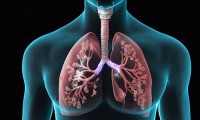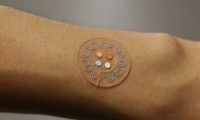-
Scholar Rock scoops $47M to trial SMA drug
- Source: fiercebiotech
- 487
- January 4, 2018
-
After disappointing 2016, new drug approvals roared back to life in 2017
- Source: fiercebiotech
- 615
- January 4, 2018
-
In boost to Abbott, spinal-cord implants emerge as alternative to pills
- Source: Crain's Chicago Business
- 559
- January 4, 2018
-
Scientists Unveil the First Portable Bionic Hand With a Sense of Touch
- Source: Futurism
- 431
- January 4, 2018
-
Starting new COPD inhaler tied to heart attack risk
- Source: Reuters
- 518
- January 3, 2018
-
FDA Approves Angiotensin-II for Septic Shock
- Source: PulmCCM
- 517
- January 3, 2018
-
The Most Surprising Wearable Trend 2017
- Source: digitalsalutem
- 712
- January 3, 2018
-
Top 5 Digital Health Trends——A Look Back At 2017
- Source: forbes
- 787
- January 1, 2018
-
More Pregnant Women Are Using Marijuana, But We Still Don’t Know The Risks
- Source: Science Alert
- 398
- December 29, 2017
your submission has already been received.
OK
Subscribe
Please enter a valid Email address!
Submit
The most relevant industry news & insight will be sent to you every two weeks.













